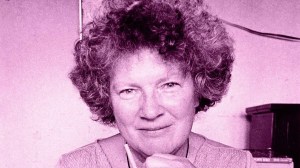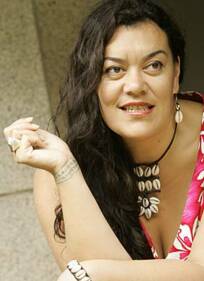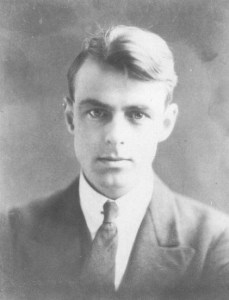
Kiwi
b. 1960
Driving across town
she feels plain
and botanical.
At a crossing
there’s a man
with a cake, girl
with a tune.
Four young people
wheel a bed,
headed for a house
where a young woman
might read, love a man/some
men, might hold their bodies
close and welcome some parts
of those bodies
into hers.
Years later
she might see these men
in suits and on television and
many years later
might pass one, a house painter,
as she drives to buy
paint, for heaven’s sake.
Now, nearing sixty,
this woman loves her husband
ferociously.
When she turns the compost
and finds the flat wrinkled body
of a mouse,
she remembers the time
he rang her in Scotland
to say he’d seen one in the pile
and what should he do?
She shovels the remains
of the mouse with the rest
of the compost to beneath
the blossom, which bows
low and graceful over neglect,
which abounds, as it does,
wonderfully, in the garden of the
southern house they move to
for a time.
He’s up to his ears
in sadness, both of them aghast
at landscape. Being asthmatic
he is immediately attractive
to animals – at the lake
a fox terrier pup takes shelter
under his chest as he lies down
on a towel after a swim.
In the kitchen a mouse
bumps into his foot. Drama
in the house! Not for the first
time. These were rooms
of costume, scenery,
leading ladies and men
on the front terrace, leaning
on architect Ernst Plischke’s rail,
stone warm underfoot, snowed
mountains as backdrop
while the deep, broad river passed
below them, always
on its way.








